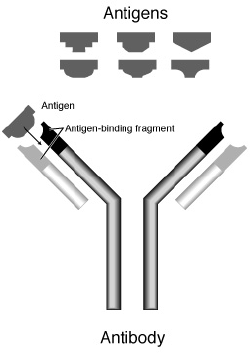Template: Featured article 03 22
From New World Encyclopedia
Revision as of 22:39, 13 March 2009 by Hironori Mitsuishi (talk | contribs) (Daily featured article from 2008 25)
Featured Article: Immune system
The immune system is the system of specialized cells and organs that protects an organism from outside biological influences (though in a broad sense, almost every organ has a protective function—for example, the tight seal of the skin or the acidic environment of the stomach).
When the immune system is functioning properly, it protects the body against bacteria and viral infections and destroys cancer cells and foreign substances. If the immune system weakens, its ability to defend the body also weakens, allowing pathogens (infectious agents), including viruses that cause common colds and flu, to survive and flourish in the body. Because the immune system also performs surveillance of tumor cells, immune suppression has been reported to increase the risk of certain types of cancer.
